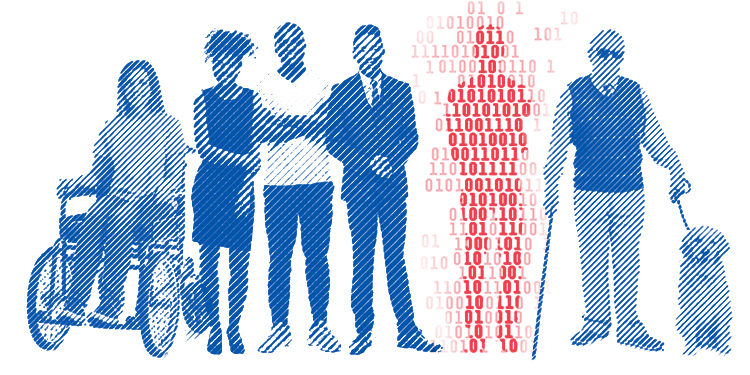In addition to federal protections, states have many laws protecting against discrimination and other unfair practices in employment that apply generally to digital discrimination and online hiring processes. In addition, some states have enacted laws specifically related to automated decision-making and digital privacy, such as:
If you are a California resident:
You have a variety of rights regarding your personal information, including the information you shared or may share when applying for a job online, and in some cases your biometric information. You have the right to know what information your employer has collected about you, to access and correct that information, and to request that it be deleted (though only for-profit companies that meet certain criteria are required to comply with this law). Employers are prohibited from discriminating or retaliating against you for exercising these rights. To learn more and exercise your rights, see California Consumer Privacy Act resources.
If you are applying for an Illinois-based job:
If your employer wants to record your video interview and use artificial intelligence (AI) to analyze the video, they must inform you before the interview that AI will be used, explain how the AI works, and obtain your consent for evaluation by the AI system. If you completed a video interview that was analyzed by AI, you have the right to request that your employer delete your interview data. You can find out more about this law and your rights here.
If you are applying for a job in Maryland and your employer does business in Maryland:
Employers cannot use facial recognition or other facial analysis technology during an interview unless you give them permission by signing a waiver. Learn more about this law and your rights here.
If you are applying for a New York City-based job and live in New York City:
Employers must notify you if they use certain types of automated tools to evaluate your application. This notice may be posted on the employer’s website, included in the job advert or communicated to you by post or email. The required notice may include information on how to request a reasonable accommodation or alternative selection process where available under other laws (for example, if you have a disability). Employers must also describe the characteristics and qualifications they consider when using an automated system, as well as information about the data the system uses. If your employer does not post a notice on their website explaining what data the system uses and how long it will retain that data, you have the right to request the information in writing from your employer. You can find out more about this law and your rights here.
If you live in another state:
Several other states also have laws that give people control over their personal information, and may also include protections against personal information being used for AI “profiling” for “job opportunities.” However, these protections may be limited, so check out the resources below to learn more about people’s digital rights in these states:
Virginia (effective January 1, 2023) Colorado (effective July 1, 2023) Connecticut (effective July 1, 2023) Oregon (effective July 1, 2024) Texas (effective July 1, 2024) Montana (effective October 1, 2024) Tennessee (effective July 1, 2025) Indiana (effective January 1, 2026)
Source link

